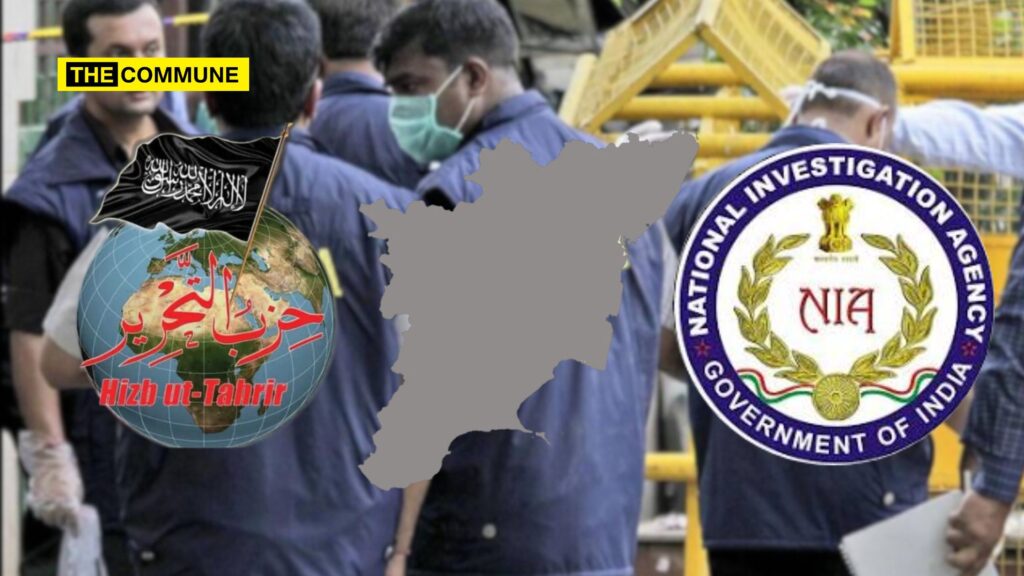National Investigation Agency (NIA) officials have initiated a probe into the terror recruitment activities linked to the proscribed extremist group Hizb-ut-Tahrir.
Dr. Hameedu Hussain, a resident of Royapettah, Chennai, and a Petroleum Chemical Engineer who served as an Honorary Professor at Anna University, has been detained under UAPA (Unlawful Activities (Prevention) Act) along with his father, Ahmed Mansoor, and sibling, Abdul Rahman. The trio was apprehended by the Cyber Crime division of the Chennai Central Crime Branch on charges of associating with Hizb-ut-Tahrir, which is outlawed in numerous nations. Subsequently, Mohammad Maurice, a 36-year-old Chennai local, Qader Nawaz Sharif, aged 35, and 46-year-old Ahmed Ali Umari were taken into custody for their connections with the aforementioned individuals.
The scope of the inquiry has since expanded, with NIA officials undertaking a comprehensive investigation under a Deputy Superintendent of Police’s supervision.
NIA representatives have disclosed that the gravity of the offenses has necessitated their involvement. Dr. Hameed Hussain is suspected of actively engaging in the recruitment for terrorist groups and has a history of international travel, which is currently under scrutiny.
It has come to light that four individuals closely associated with Hussain have deactivated their mobile phones and are now fugitives.
Investigations reveal that Hussain has orchestrated training sessions and secret meetings on extremist ideologies not just in Chennai but also in Karur and Kanyakumari. Efforts are underway to gather information about the ‘Modern Essential Educational Trust,’ established for similar purposes, and to track the individuals involved with this entity. They have utilized platforms like YouTube for their recruitment and radicalization of youths in Tamil Nadu.
தீவிரவாத அமைப்பிற்கு ஆள் சேர்த்த வழக்கு – தமிழகத்தில் மேலும் இரண்டு இடங்களில் ரகசிய கூட்டம் நடத்தியது கண்டுபிடிப்பு : போலீசார் #Terrorism | #Tamilnadu | #Police | #SecretMeeting pic.twitter.com/kDK9YvT9R3
— Polimer News (@polimernews) May 28, 2024
In February 2024, the National Investigation Agency (NIA) conducted a series of raids across 21 sites in Tamil Nadu, resulting in the arrest of four individuals. The operations targeted 11 venues linked to an educational institution implicated in the indoctrination of youth with Islamic State (IS) ideologies under the guise of Arabic language instruction, with the intent of inciting them to commit terrorist acts.
These actions were related to two investigations: one concerning IS cells inspired by Zahran Hashim, the mastermind behind the 2019 Sri Lanka Easter bombings, and the other involving the 2022 Coimbatore car explosion and the broader issue of IS indoctrination and recruitment within Tamil Nadu.
The authorities confiscated a variety of items, including six laptops, 25 mobile phones, 34 SIM cards, six SD cards, three hard drives, and numerous documents and material evidence.
The NIA’s scrutiny extended to eleven sites associated with either Madras Arabic College or Kovai Arabic College, where covert radicalization efforts were underway. These efforts involved the dissemination of extremist ideologies and the promotion of violent jihad to unsuspecting students enrolled in Arabic courses at various local study centers throughout Tamil Nadu.
The radicalization campaign also unfolded online, utilizing social media platforms and messaging apps like WhatsApp and Telegram. IS affiliates exploited these digital channels and the educational classes to deliver extremist lectures aimed at advancing the Khilafat and IS doctrines, which stand in opposition to India’s foundational values of secularism and democracy, as per the NIA’s Sunday announcement.
Simultaneously, NIA units raided an additional ten locations linked to the Coimbatore car bombing incident. These searches encompassed areas associated with suspects who were members of a secure mobile communication group, alongside other detainees. Investigations revealed that these individuals praised Zahran Hashim and utilized the group to deliberate on IS activities and the potential for establishing the group’s presence in India.
The NIA’s findings indicate that susceptible youths were being groomed to execute terrorist deeds and engage in illegal activities, such as the Coimbatore car bombing. It was discovered that ten individuals apprehended in connection with the bombing had ties to Kovai Arabic College in Coimbatore.
Among those arrested following the raids, three were connected to Madras Arabic College. This includes Jameel Basha Umari, the founder of the college, known for advocating fundamentalism, extremism, and radicalization. He openly supported the Khilafat ideology and endorsed the notion of sacrificing oneself for violent jihad. Two other detainees, Maulvi Hussain Faizy and Irshath, both alumni of Jameel and Madras Arabic College, were instrumental in renaming Madras Arabic College to Kovai Arabic College. The fourth individual apprehended, Syed Abdur Rahman Umari, was found in possession of incriminating IS-related materials and was actively involved in disseminating ISIS principles to those implicated in the Coimbatore car bomb case through clandestine gatherings and sermons.
(With Inputs From Dinamalar)
Subscribe to our channels on Telegram, WhatsApp, and Instagram and get the best stories of the day delivered to you personally.

